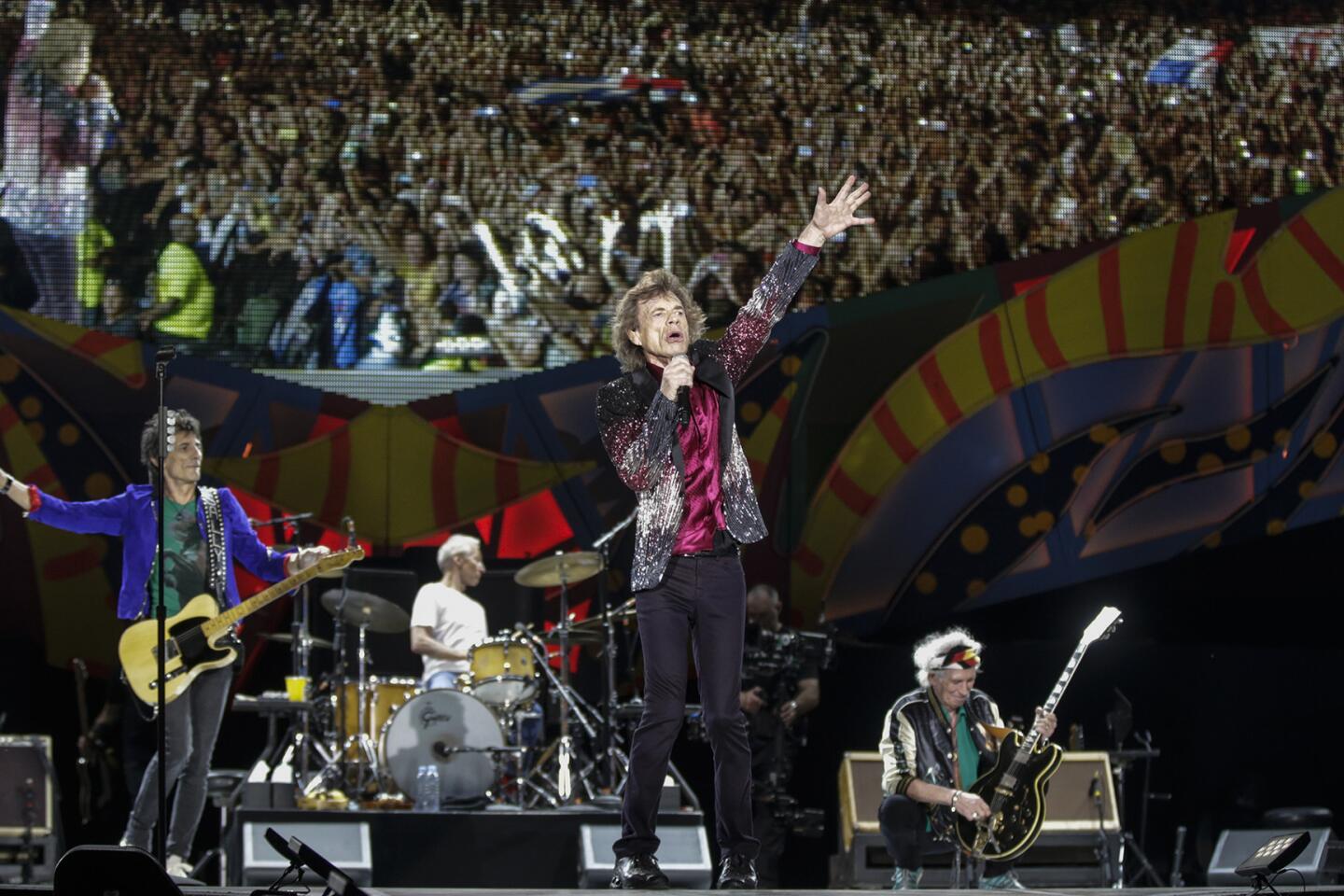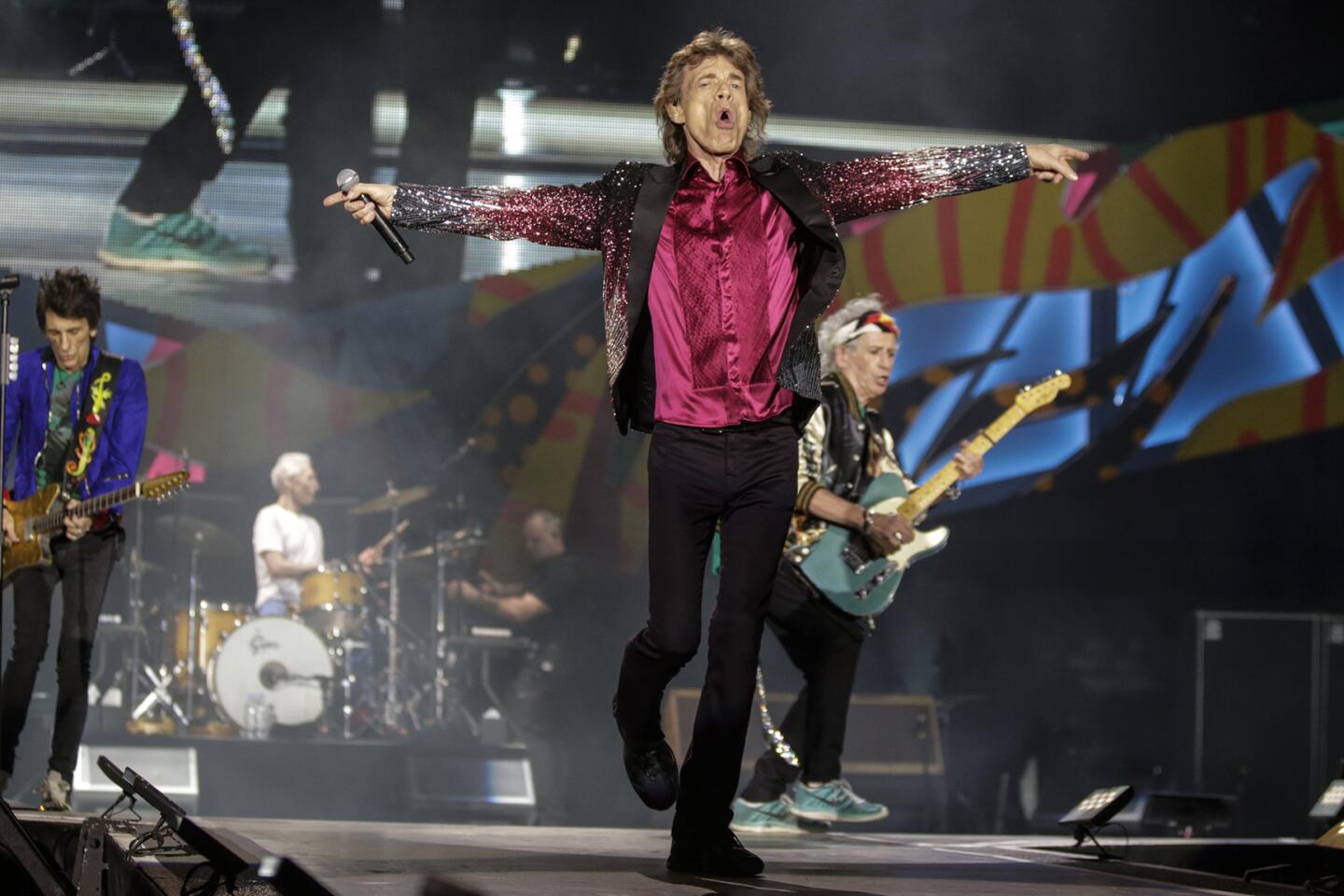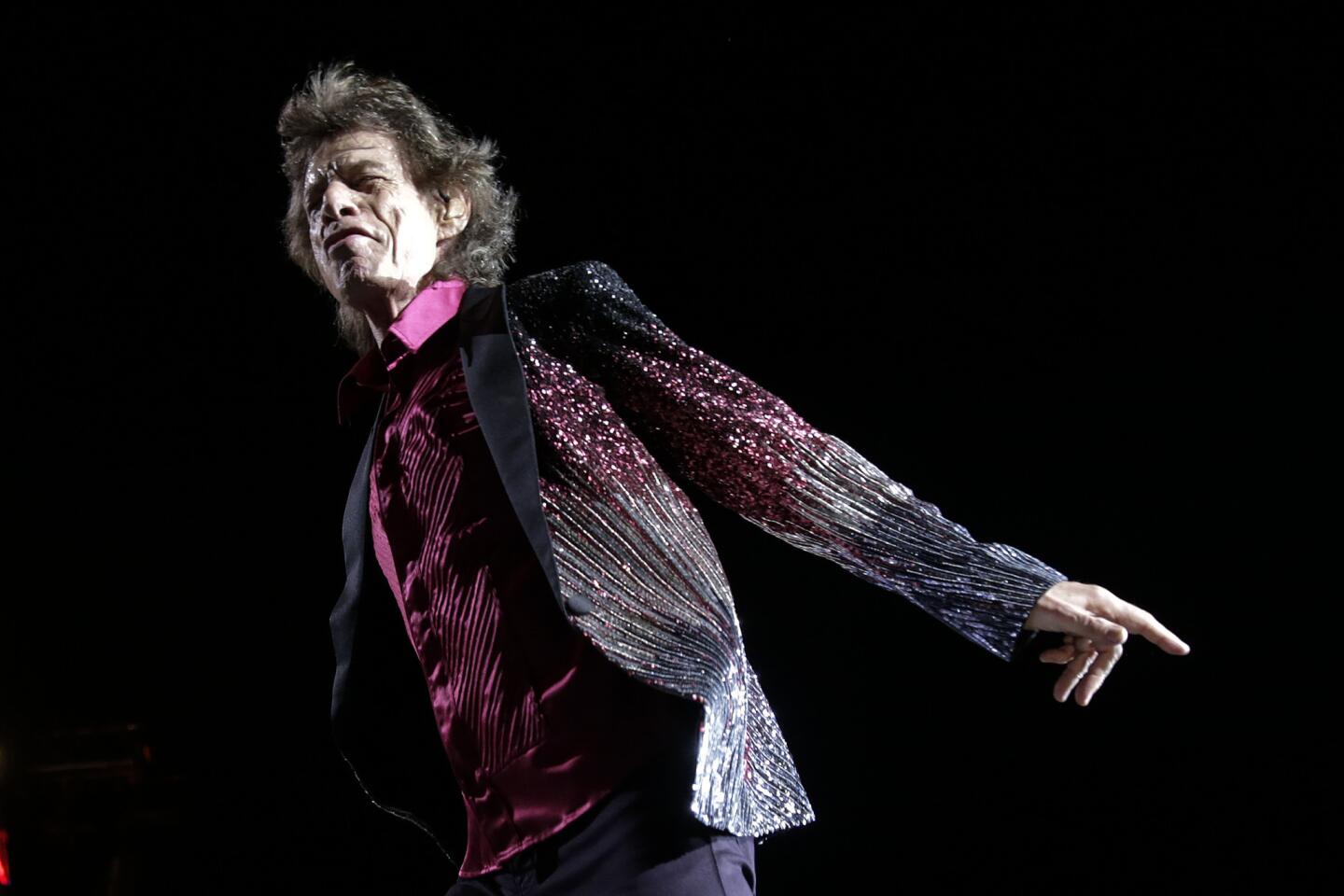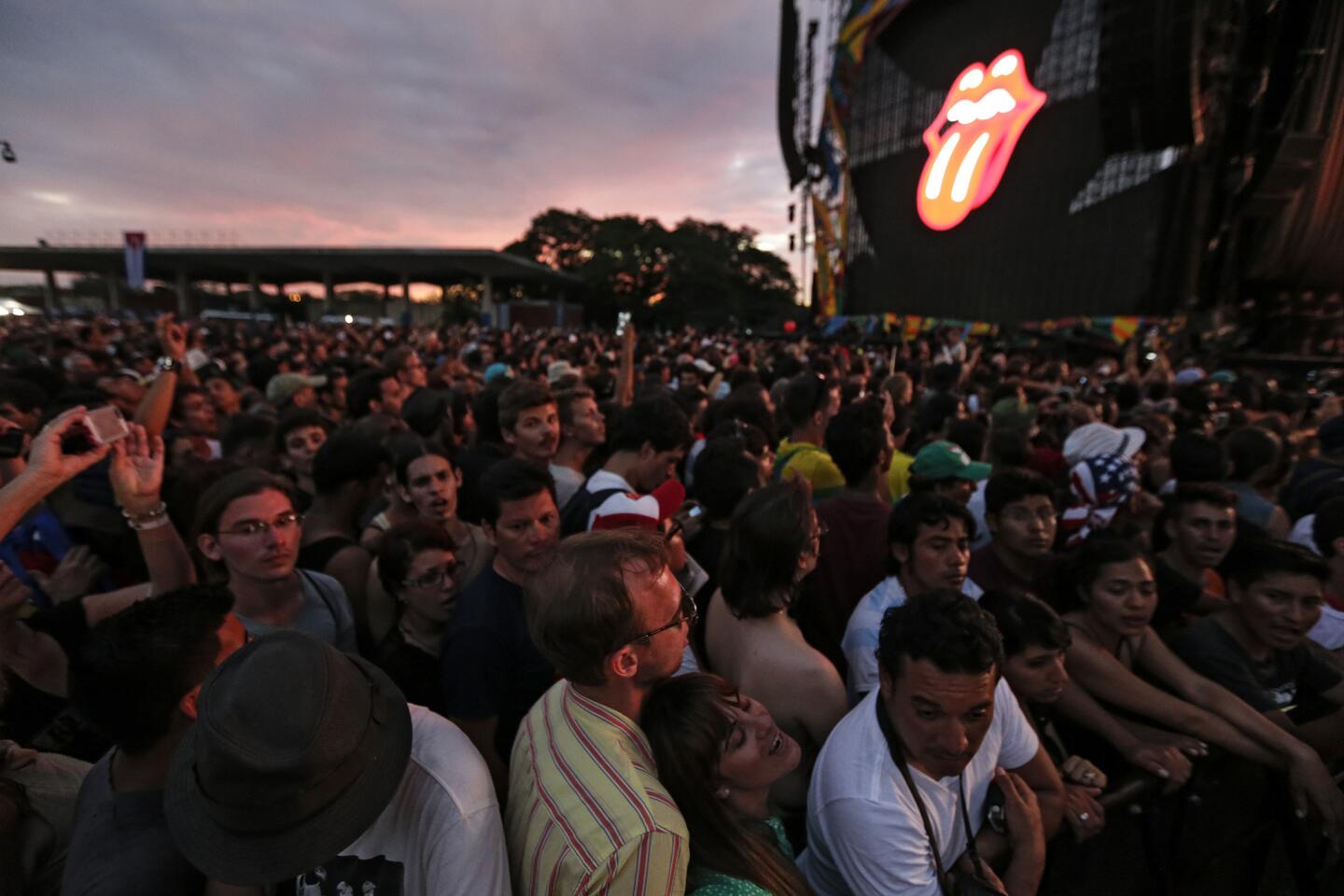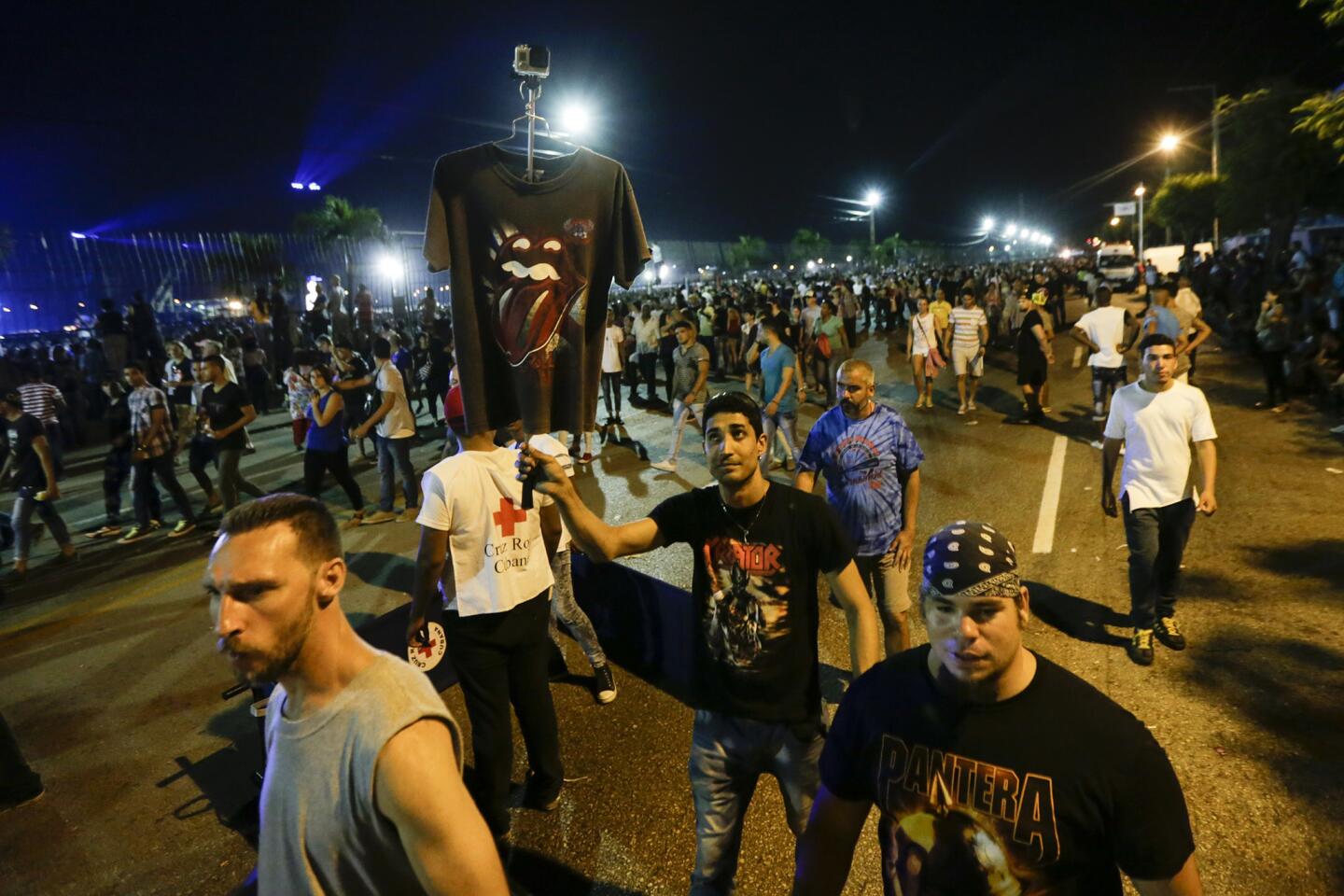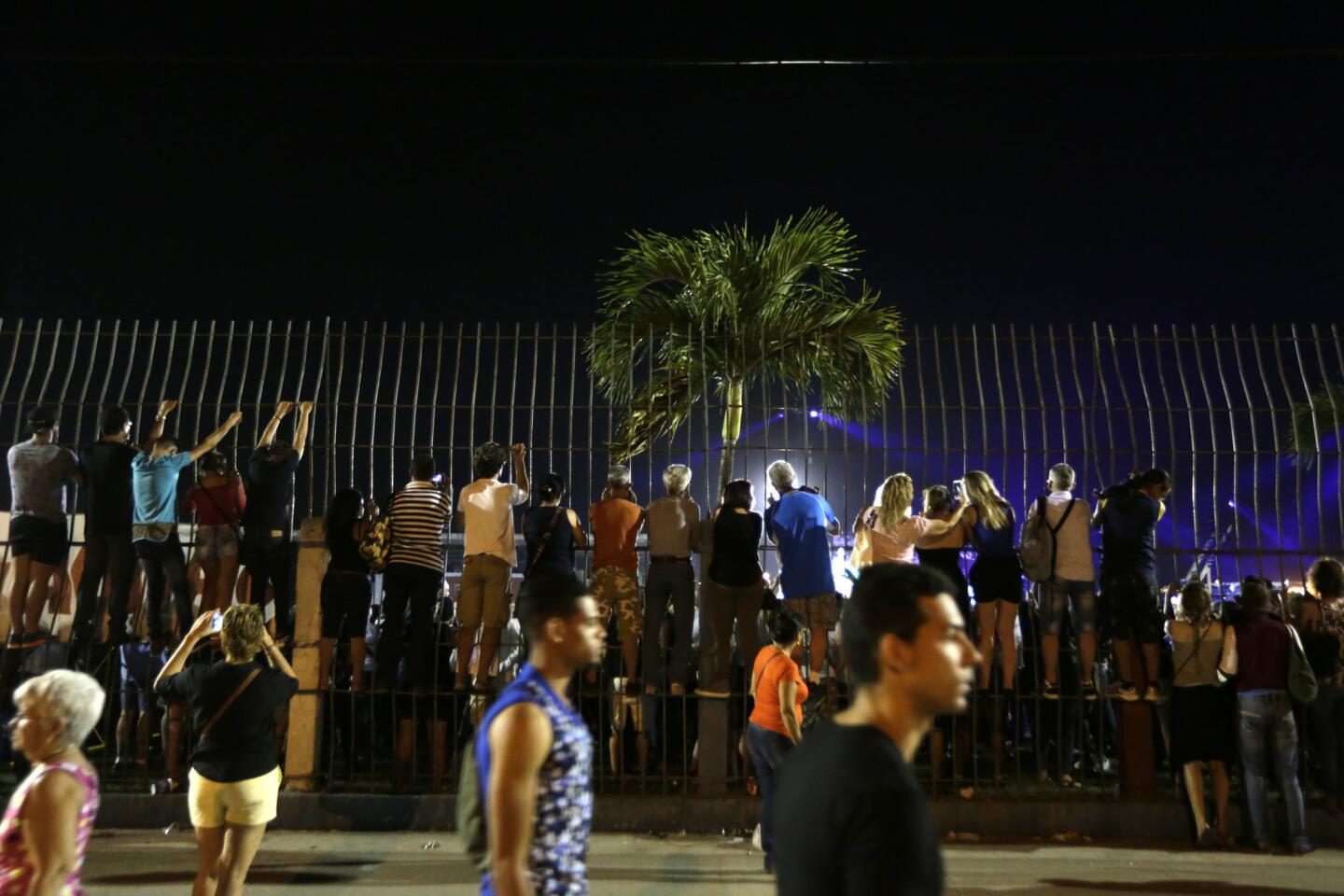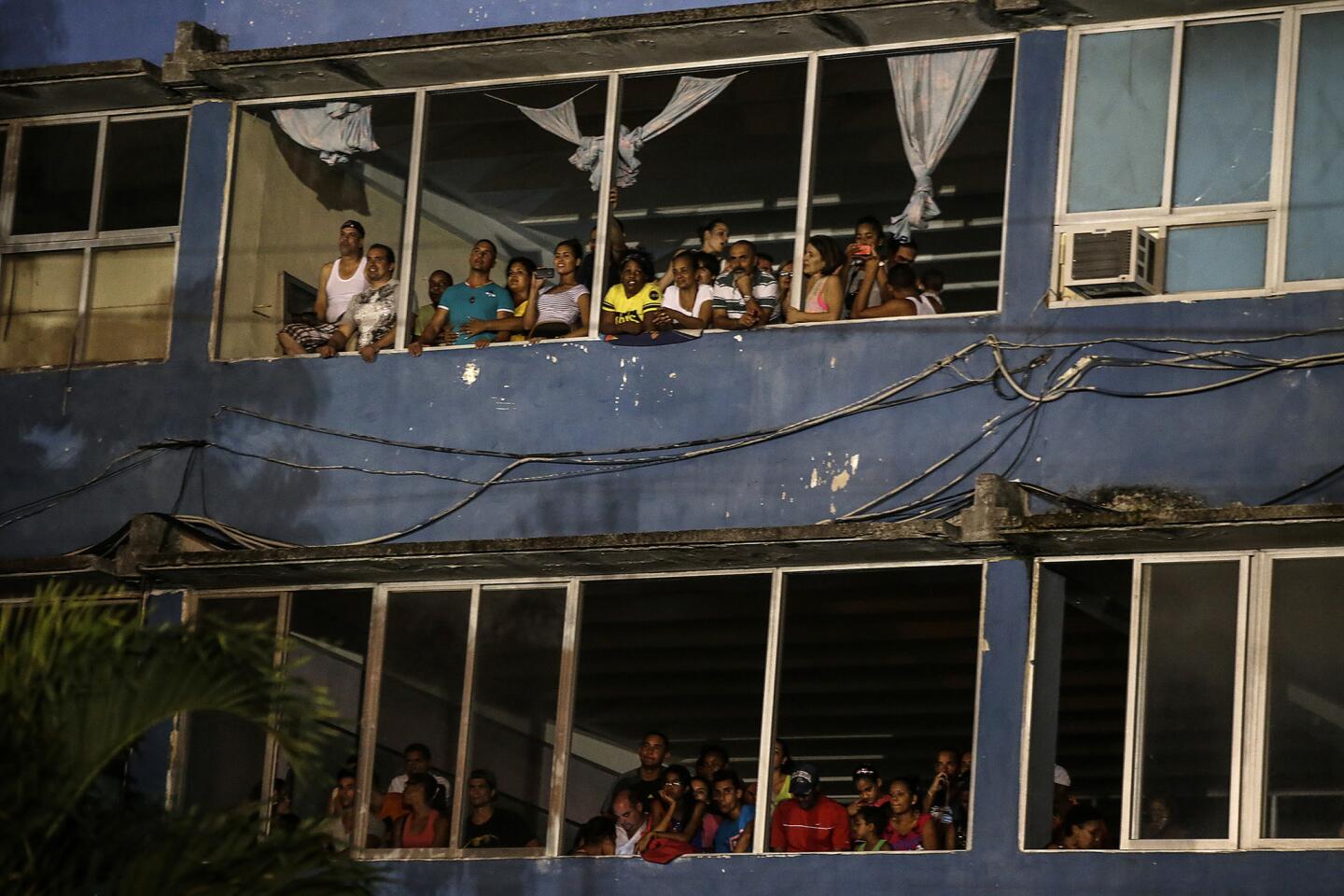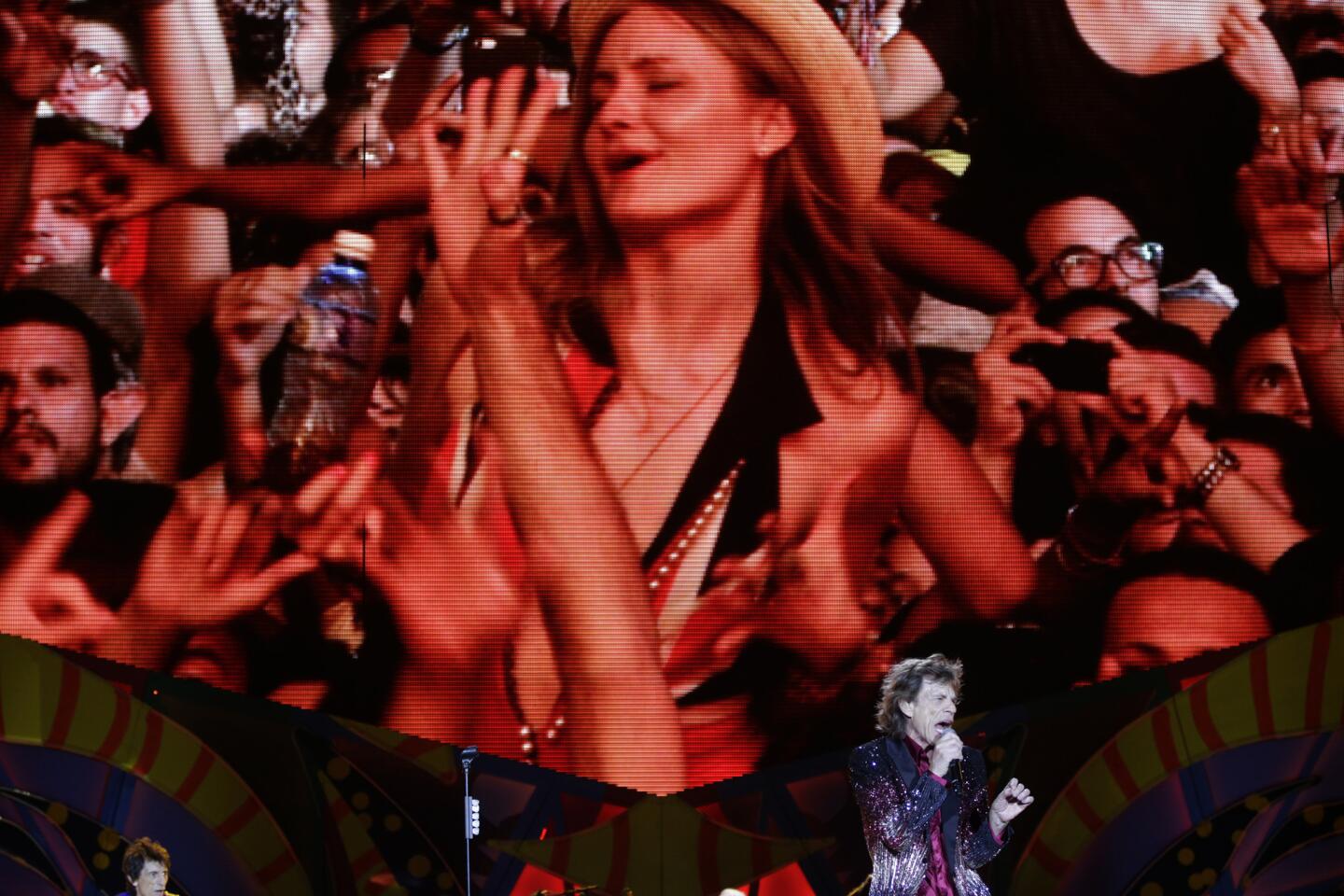Start them up: The Rolling Stones play Cuba
His pink sequined jacket glittering under the stage lights, Mick Jagger looked out at the roaring Havana crowd and pulled the microphone up to his pillowy lips.
“We know in the past it wasn’t easy to hear our music in Cuba,” Jagger said. “But here we are, playing for you. I think that finally the times are changing.”
There was little doubt about it Friday night, as hundreds of thousands of Cubans flocked to a free Rolling Stones show to dance, clap and sing along to songs once scorned by Cuba’s revolutionary leaders.
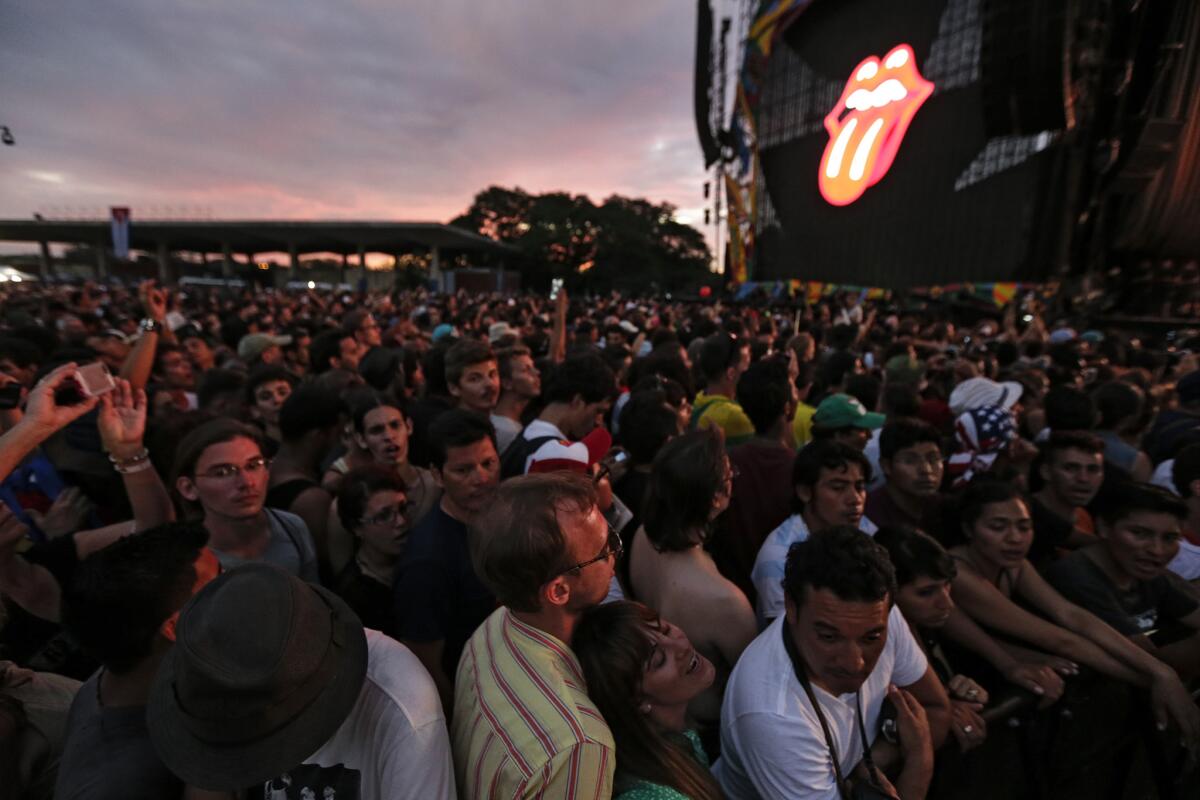
The sun sets moments before the Rolling Stones deliver a historic free performance to hundreds of thousands of people at Ciudad Deportiva in Cuba.
It was hard not to see parallels with other recent openings in Cuba, including the communist country’s recent moves toward private enterprise and reconciliation with longtime enemy the United States.
The concert, held at a sprawling outdoor sports complex just a few days after President Obama’s historic visit to Havana, capped off a week of spectacles here that not long ago would have seemed impossible. On Tuesday, President Obama and Cuban leader Raul Castro mended decades of animosity by sitting down together at a baseball game featuring teams from both countries.
Much like the game, a festival atmosphere prevailed at the concert, with some people kicking off their shoes, stripping off layers of clothing and lying down on blankets in the hot Havana night. Many climbed fences or crowded onto nearby rooftops to get a better view of Jagger, guitarists Keith Richards and Ron Wood, drummer Charlie Watts and bassist Darryl Jones. They churned out hits like “Jumpin’ Jack Flash,” “Satisfaction” and “Honky Tonk Women.” They played on a stage as long as a city block. The elaborate setup, which featured video screens larger than some apartment buildings, were shipped to Cuba from Europe, along with a battalion of portable toilets.
While Cuba has played host to other major concerts in recent years, including a performance by Colombian crooner Juanes and a recent outdoor electronic music party featuring Diplo and Major Lazer, Friday’s show was especially significant because of the era of music the Stones represent.
There was little room for rock ‘n’ roll in Fidel Castro’s communist revolution, which distrusted bands like the Beatles and Rolling Stones as irreverent and anti-authoritarian at best and agents of cultural imperialism at worst.
Famed Cuban musician Silvio Rodriguez lost his TV show in the late 1960s after he defended the Beatles on air. Rock records were hard to find, and while some musicians experimented with the medium in underground venues, anything too public or flamboyant risked government reprisals.
In other words, Jagger’s shaggy haircut, skin-tight clothing and scandalous dance moves were a no-go.
For Cuban rock fans from that era, the show was a chance to relieve the past.
“We all wanted to be at Woodstock,” said Nilda Dominguez, 60, a Havana English teacher with a well-coiffed Afro who attended the show with her husband, Hilario Godoy, 60. He recalled passing around bootleg versions of Stones records among friends because Cuban government stores didn’t sell them.
Back then, in the years following the establishment of the U.S. trade embargo, Cuba was off the map for most touring rock bands, Dominguez said.
Now, she said, “Cuba is in fashion. And I am very, very happy about that.”
Restrictions on music in Cuba are long gone. And rock has largely been eclipsed among young Cubans by vibrant reggaeton, rap and Afro-Cuban music scenes.
Still, the concert drew people of all ages, including Susana Nunez, 24, who said she was there in part to support her parent’s generation.
“It’s an opportunity we have that they never did,” said Nunez, who said her mother and father decided to skip the crowds. Dressed in an unofficial Rolling Stones shirt she bought from a friend at school, Nunez said she knows the words to Stones songs like “Gimme Shelter” and “Satisfaction” because her parents used to play them so much.
Fans starting streaming toward the sports complex in the morning to jockey for good positions. By the afternoon, a river of cars had caused a traffic jam near the stadium, an unusual site in a country with relatively few vehicles, thanks in part to the trade embargo. A young man stuck in traffic in a baby blue 1950s Plymouth distracted himself with a pair of headphones. He was listening to the Stones, of course.
The concert also drew a large number of foreigners, a testament to the changes that are happening quickly here.
Tourism to Cuba has increased rapidly in recent years and is set to explode as the U.S. eases travel restrictions to the island and more than a dozen U.S. airlines vie to provide direct flights.
Enrico Brogini, 56, a tourist from Switzerland, said he already had planned his vacation to Cuba when the Stones announced their Havana show — a surprise last stop on their Latin American tour. Brogini said he first saw the band play when he was 18 and has seen them play many times since. Typically, he said, “I spend about $300 on a ticket.”
Few bands have been as canny as the Rolling Stones at turning their art into a hugely profitable commercial enterprise, which is why it was remarkable that at Friday’s show, tickets were free and there was no official Stones merchandise for sale. With most Cubans earning around $25 to $35 a month from the government, few of them likely could afford it.
There were, however, multiple video cameras and a small drone shooting footage for a future concert documentary. And then there were high-profile stars, including model Naomi Campbell and actor Richard Gere, who had come for the spectacle.
Jagger, still an energetic showman at 72, jutted his ever-slender hips in impressive dance sequences and led crowd members to stomp and clap in unison for “Paint It Black.” That addition to the hard-charging bad-boy anthem imbued the song with the energy of a stampede of approaching horses.
And he charmed the crowd with banter in halting Spanish, tinged with a cockney accent. He praised a recent dinner in Havana, and a trip the band took to a nightclub to hear some mambo.
After “Jumpin’ Jack Flash,” one of the band’s riotous early hits, Jagger smiled. “Here we are,” Jagger told the crowd. “Finally.”
ALSO
U.S. companies line up to do business in Cuba
What you need to know about the Cuban dissidents who met with Obama
Obama challenges leaders to keep up with an ‘evolution taking place inside Cuba’
More to Read
Start your day right
Sign up for Essential California for news, features and recommendations from the L.A. Times and beyond in your inbox six days a week.
You may occasionally receive promotional content from the Los Angeles Times.
